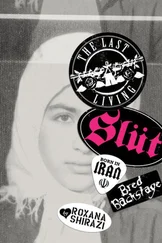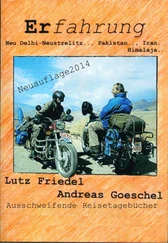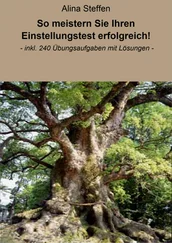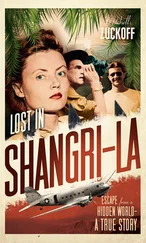“Sorry,” answers Ismail.
“Something to drink?”
“Also no.”
Mina, a friend of Elaheh, is already there, as well as three men. The party location is in a garden behind a fifteen-foot-high wall concealing all from prying eyes. An acidic fruit called “green tomatoes” and mulberries grow here, and directly next to the entrance there is a swimming pool some 30 feet long and 6.5 feet deep. In a small outhouse with a kitchen and living room we change, one after the other. Soon, two women in bikinis and five men in shorts are hopping into the ice-cold water. Ismail uses a GoPro camera with a watertight case and film, especially when the women are swimming. In particular the well-built Mina seems to relish the interest that her body arouses. I am astonished by her trust in Ismail not to do something stupid with the film, like posting it on Facebook. I feel like a reporter who has been invited to a secret porn shooting location. The difference is that being caught at a porn shoot in Europe would cause you considerably less trouble.
With my expensive camera I am also asked to snap a few photos. Men on the seats of the Jeep, women on the hood. Sensational material that would send the moral police into frenzies. Unfortunately, I will never be able to publish them.
“There’s nothing to drink, so what shall we do?” Elaheh asks the mother of all questions. We sit around on plastic chairs and eat melon and smoke miniature cigarettes called Bahman. I learn how to say “Your father is a dog” and “Eat shit” in Persian and in return teach the others a few filthy German phrases. Just because this party is forbidden doesn’t automatically mean that it’s a good one.
On the way back in the late afternoon we stop at the Venice Café, which is as close to a cozy European pub as you can get without selling alcohol. Behind the bar there are rows of bottles containing different colored liquids, not spirits but fruit syrups. The words La fortuna puì grande è trovare felicità nelle piccole cose—Happiness is enjoying the small things in life —are written in white chalk on a board. How true. At the moment I’m enjoying the aroma of a real cappuccino; at last, a coffee that’s not based on the ubiquitous Nescafé. The interior with wooden walls is so dark that the faces of the young guests are mainly illuminated by their tablets or cell phones, on which they play Castle Clash or send a few words and loads of emoticons via Viber. Viber and Telegram are the most popular communication apps because WhatsApp doesn’t always work here.
There are also pauses in our communications because we are distracted by the glare of the screens. Elaheh orders a French coffee and talks of illegal drugs. “I think, in fact, the government has nothing against them because they stop people from getting silly ideas. If you are high you don’t start a revolution.” She inhales her Bahman cigarette with obvious pleasure. “Apart from that, it’s written in the Quran that alcohol is forbidden, but there are no clear instructions about hash, opium, or heroin.”
“Aren’t you frightened of getting caught drinking?”
“It’s a game of chance; up to now I’ve been lucky.”
We again turn back to our cell phones. Elaheh studied dentistry for five years in Istanbul, was in Europe three times, knows Hamburg, Berlin, and Münster. Her father is a banker, her mother is a biologist, and they share an apartment. In Europe she would be considered to have high potential. In Mashhad, the second-largest city in Iran, she can’t find a job. “At the moment I’m assisting a bit in a dental practice just for the experience; I don’t earn anything.”
Elaheh has two siblings, a brother who is an engineer and a sister who is a doctor. Both moved away long ago and now live in the U.S. Probably she will soon follow them abroad. Like so many people who are highly educated she has no prospects in her home country, and on top of that, she has had bad experiences with Iranian men. “Most of them are interested in only two things: money and pornography,” says Elaheh.
A friend of hers joins us—who is as plump as he is chirpy—businessman Mehdi, who deals in electronic parts and fittings. He speaks perfect English, because he lived for a number of years in Toronto, and talks nineteen to the dozen. He tells us about an Arabian prince who bought golden light switches from him, about the Italian ambassador in Tehran who is much more relaxed than his stuffy German equivalent, about a crash landing a few days ago in the eastern Iranian city of Zahedan and the friend who survived it, about the electronic trade fair in Frankfurt that he visited in March. And about Mashhad.
“My friends in Tehran think that Mashhad is boring because of all the religious fanatics, but it’s not true. There is everything here that you could want: parties, good cafés, everything. As long as you avoid Haram, the area where the shrine is, you can live well here.”
Mehdi is not interested in religious destinations; for him there are far more interesting alternatives. “From time to time I make a pilgrimage to Amsterdam. Last year I took a couple magic mushrooms and went to the flower show at Keukenhof—that was incredible. For two days I only wandered around with sunglasses.” Enlightenment for all: Muslims make pilgrimages to the shrine in Mashhad and nonreligious Mashhadis make pilgrimages to Dutch coffee shops.

LOST IN VISA APPLICATION
I’M NOT SUREwhether Imam Reza heard my request for a visa extension. The necessary stamp didn’t materialize in my passport overnight, so the next morning I take a cab to the Foreign Affairs Office to be grilled in a plain waiting room by a small man in a fine gray suit.
“Why do you want to extend your stay here?” he asks, his tone implying that I had asked him whether he needed a naked cleaner for his apartment.
“I love traveling in Iran; I like it very much here.” One of the few sentences in the ensuing hours that is the complete truth.
“What are you doing in Mashhad?” he demands.
“Visiting the holy shrine.”
“Where did you get the first extension?”
“In Kerman.”
“What did you do there?”
“I made a tour of the Kaluts in the desert. I’m interested in the whole country; I want to see as much of Iran as possible,” I say, trying to win him over.
“Then you should do it in twenty days.” He stabs the date in my original visa with his index finger to emphasize his point.
“So I can’t extend it here?”
“Go to the police station, Imam Reza Street 1, and ask there.”
He turns away. He seems to have decided that our conversation is over. I take a cab to Imam Reza Street.
The cab driver must have misunderstood me. He lets me out at a tiny police post at a roundabout, where two weary policemen are keeping watch. There’s no way that they will have a visa extension stamp in the drawer of their desk, is there? Well at least it’s the right street. I suppose I could ask them where the main police station is, but it all seems a bit odd. If you can’t renew a visa in the Foreign Affairs Office, how on Earth would it be possible here? And isn’t a voluntary visit to the Iranian police something that a multiple lawbreaker simply has to avoid?
I walk down a street that consists almost solely of hotels and souvenir stores. Studio photos of kids grotesquely spruced up, using Photoshop to embed them in front of the Reza shrine dome, seem to be very popular.
On a corner I see the Aria Travel Agency sign and buy a bus ticket for the next day to a town on the Caspian Sea. Then I ask about the prospects of getting a visa extension. The boss himself offers his help and grabs the telephone to make inquiries.
Читать дальше
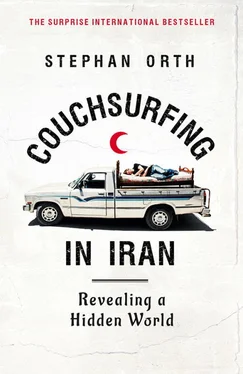


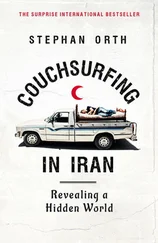
![Stephan Orth - Behind Putin's Curtain - Friendships and Misadventures Inside Russia [aka Couchsurfing in Russia]](/books/415210/stephan-orth-behind-putin-s-curtain-friendships-a-thumb.webp)
